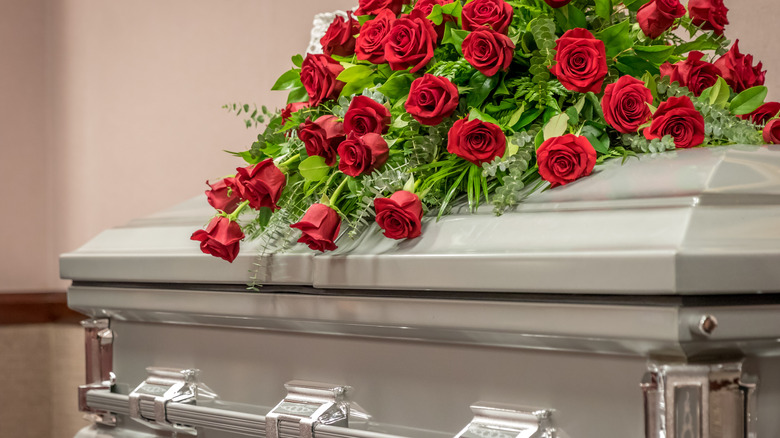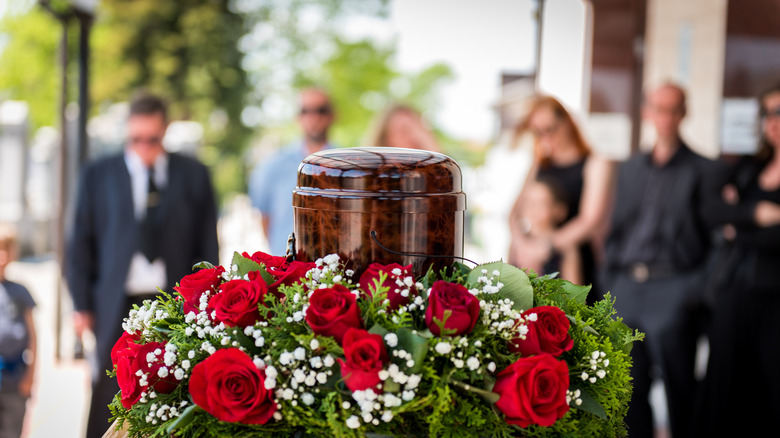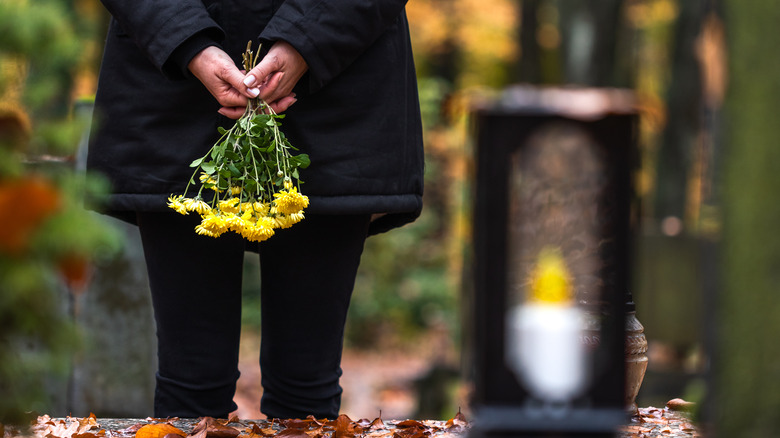Is Embalming Necessary Before Burial Or Cremation?
Death might be inevitable, but there is nothing more uncomfortable than thinking about death and dwelling on the thought of what happens to us after we die. While many people have a morbid fascination with other people's deaths — the popularity of shows like "Midsomer Murders" and law enforcement procedurals like "NCIS" and "CSI" are testament to that fact, many are reluctant to ponder their own mortality. We all have to die one day, and while "what happens to my body once I die" might not really matter to the person doing the dying, it does seem to matter to the people close to them.
For centuries, humans have been employing techniques to preserve human bodies after death. While any process of preserving human remains is considered embalming, the reasons for embalming and the techniques employed to do so have changed over the centuries. So what is embalming and how is it done? And is it really necessary before burial or cremation?
Why do people embalm bodies before burial or cremation?
A century or so ago, embalming was not as common in the United States as it is today, according to Time. The Civil War brought with it an increase in the need for embalming procedures because deceased soldiers faced a long train journey home and had to be embalmed so that their bodies would reach loved ones far away without decomposing, says the National Museum of Civil War Medicine. Soon, embalmers and funeral directors started recognizing the potential for profit with embalming, and by the 20th century, most funerals in the United States were professionally managed, with bodies being embalmed for viewing by close friends and family.
Embalming remains rare in other parts of the world today (via The Baltimore Sun). While people in the United States, for a variety of reasons, have come to believe that embalming before burial or cremation is a necessary part of the funeral process, the truth is that it is far from being so.
Embalming is not actually necessary for burial or cremation
While it is commonly believed that embalming is necessary to halt the decomposition of a corpse and make it suitable for viewing, the macabre changes (such as bloating) take at least 72 hours to set in, according to Aftermath.
Also, if you're worried about preserving a loved one's body until funeral arrangements can be set up, most funeral homes today offer refrigeration services that preserve the body without having to use harmful chemicals that are also possibly harmful to the environment.
The process of embalming is also more invasive than people are sometimes led to believe (via Britannica). Blood is drained from the body through a vein, and is replaced with a fluid such as formaldehyde.
And then, of course, there is the matter of cost. Setting up a funeral with embalming is often much more expensive than a funeral that forgoes embalming (via Lincoln Heritage Funeral Advantage).
At the end of the day (no pun intended), whether one chooses to go with embalming is a personal decision, and not unlike other decisions to do with death, involves many emotions. Going into the process with a knowledge of different procedures and why they are done can potentially make the decision-making process a little easier.


